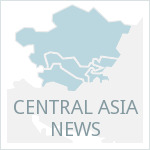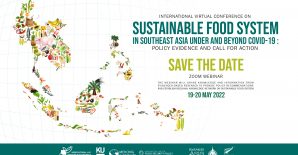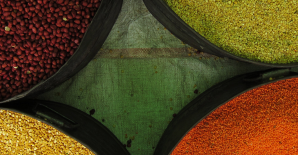News
Kyrgyzstan moves to compensate losses caused by Kazakh border bottleneck
The Kyrgyz government has adopted a resolution aimed at assisting businesses and entrepreneurs who have suffered financial losses due to delays at the Kyrgyz-Kazakh border. Kazakh border authorities reportedly tightened checks starting on October 10, which some analysts believe is in retaliation for harsh criticisms directed at the Kazakh president Nursultan Nazarbayev by his Kyrgyz counterpart Almazbek Atambayev. Atambayev, who is set to leave office, accused Kazakhstan of interfering in the Kyrgyz presidential election, which concluded on October 15. – RFE/RL
Entrepreneurs experience great losses on Kyrgyz-Kazakh border
The Kyrgyz economic minister Artem Novikov estimates that local exporters are losing money because of delays at the Kazakh border. He cited an average of approximately $23,500 lost per day based on a survey of 349 drivers. Traffic at two major checkpoints has more than halved since additional measures were implemented by Kazakh border authorities. – AzerNews
ADB president commits more than $5 billion to support new strategy for Central Asia Regional Economic Cooperation
ADB president Takehiko Nakao announced in Tajikistan that ADB will commit more than $5 billion to supporting the “CAREC 2030” initiative on behalf of the Central Asia Regional Economic Cooperation (CAREC) program. CAREC 2030 will oversee the scaling-up of CAREC operations, which to date have focused on integration and cooperation across its 11 member countries. The “Dushanbe Declaration” also announced CAREC plans to increase linkages with other regional cooperation programs including the China-led One Belt One Road initiative. – ADB
World Bank to help Kyrgyz Republic improve efficiency and quality of its heat supply
The World Bank is helping finance improvements to Kyrgyzstan’s winter heating systems through a combination of grants and credits. Only 17 percent of Kyrgyz households have access to central public heating, mostly in Bishkek and other large cities. The project will rehabilitate Bishkek’s public heating system and help 14,000 low-income households switch to efficient and clean heating stoves. – Reliefweb
Turkmenistan sells China ice cream as energy profits melt
A private Turkmen company has shipped over six tons of ice cream in a rare trial run of Turkmen food exports to China. Turkmenistan is looking to diversify its exports in the midst of an economic crisis caused in large part by failed trade negotiations and depressed energy prices. – Geo TV (Pakistan)
Analysis & Other Information
Once closed and repressive, Uzbekistan is opening up
The New York Times discusses the recent changes in Uzbek politics with a focus on the human rights situation in the country. – New York Times
Uzbekistan's new president tiptoes toward liberalization
In this opinion piece in the Washington Post, the Post’s editorial board expresses cautious optimism about the current direction of the Uzbek government. – Washington Post
Uzbekistan and Turkey: is it love?
Turkey hosted Uzbek president Shavkat Mirziyoyev for a two-day summit in Ankara on October 25-26. It marked the first state visit by an Uzbek leader to Turkey in 18 years. Uzbek-Turkish ties have been rocky since the 1990s, owing to a series of disagreements in the business and political arenas. Relations between the two countries have healed somewhat following the start of Mirziyoyev’s presidency. – Eurasianet
Tensions build between Kyrgyzstan and Kazakhstan
Many observers believe that heated remarks by Kyrgyz president Almazbek Atambayev directed at Kazakh president Nursultan Nazarbayev are responsible for retaliatory actions by Kazakh border authorities. Atambayev accused the Kazakh government of meddling in Kyrgyzstan’s presidential election by backing the opponent of Atambayev’s political ally in the race. Among other remarks, Atambayev criticized Nazarbayev’s length of rule and Kazakhstan’s pension system. – Eurasia Review
Junk bond sale and development aid: how to build a road and a dam in Tajikistan
Tajikistan will receive generous amounts of investment and aid over the coming years from donor agencies and private investors. Tajikistan recently entered the international bond market in September and raised $500 million. Much of the funding will go toward infrastructure projects such as the proposed Rogun Dam, which critics claim is technically difficult and fraught with diplomatic and environmental risks. – The Diplomat
"Iron silk road" threatens to sidetrack Russia
The leaders of Turkey, Azerbaijan, and Georgia opened a railway traversing the southern Caucasus on October 30, which the three countries are promoting as a potential corridor for China’s One Belt One Road initiative. The 830 km Baku-Tbilisi-Kars (BTK) railway is a combination of newly built and refurbished lines. The BTK route will allow goods to bypass existing railways going through Russia and was initially envisioned in the 1990s. China was not involved with financing or construction, but its president Xi Jinping endorsed the BTK initiative as a complement to the One Belt One Road concept earlier this year. – Nikkei Asian Review
Publications & Reports
Millet cultivation in Central Asia: a response to Miller et al.
Brite, F. Kidd, A. Betts, M. Cleary (2017). Holocene, 27(9), pp. 1415-1422.
Mapping and assessing crop diversity in the irrigated Fergana Valley, Uzbekistan
Conrad, F. Low, J. Lamers (2017). Applied Geography, 86, pp. 102-117.
Regulation of economy through monetary policy: empirical analysis of impact channels in the case of Uzbekistan
Duskobilov (2017). Research Journal of Finance and Accounting, 8(2), pp. 123-127.
Central Asian "characteristics" on China's New Silk Road: the role of landscape and the politics of infrastructure
T. Sternberg, A. Ahearn, F. McConnell (2017). Land, 6(3), No. 55.
Archived issues of the news digest can be found on the Central Asia page under the ReSAKSS Asia website: http://resakss-asia.org/regions/central-asia. A link to the newsletter can be found under Blog Posts.
The articles included in this news digest have been generated from online sources. Any opinions stated herein are not representative of, or endorsed by, the International Food Policy Research Institute or its partners.



